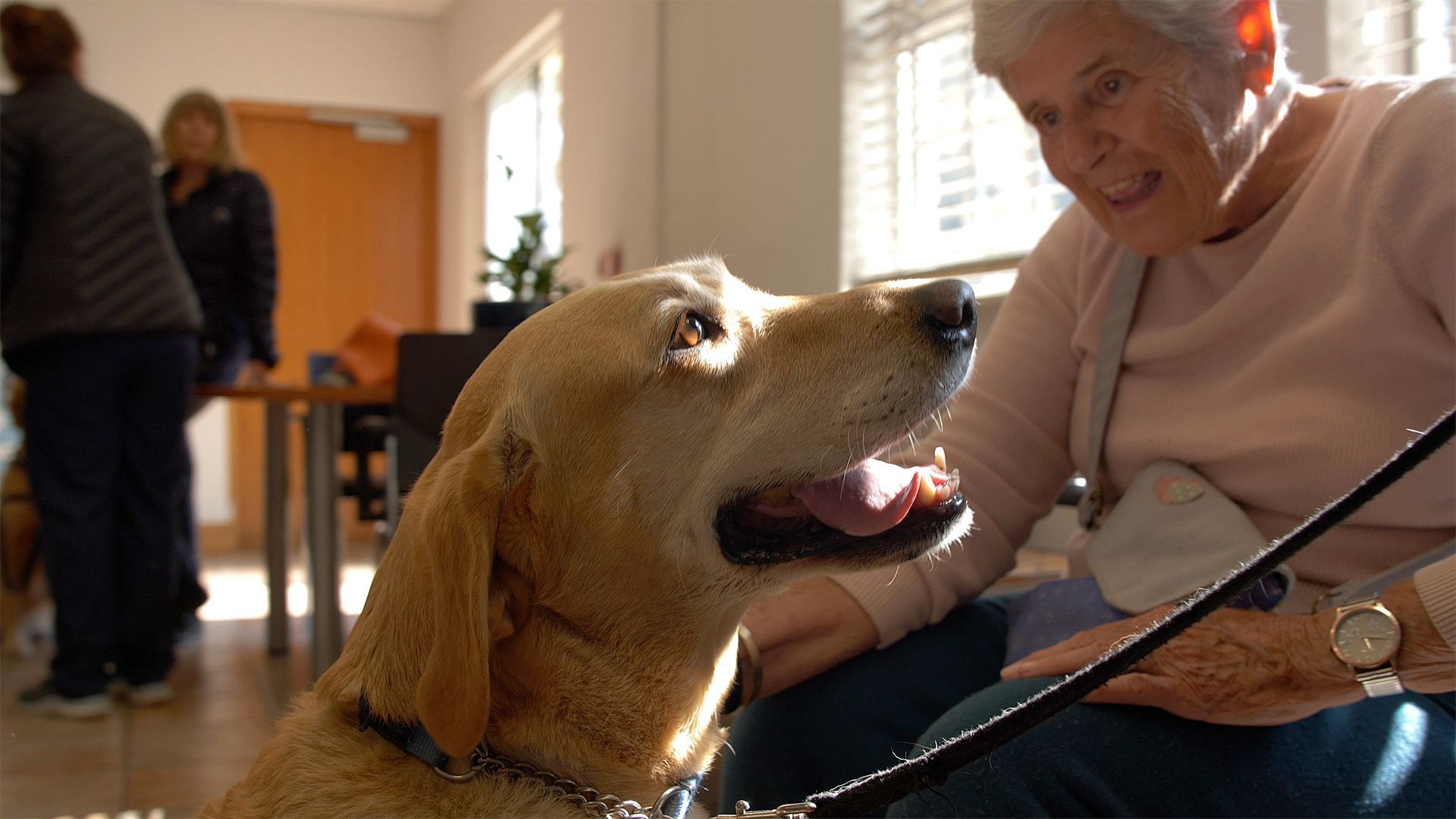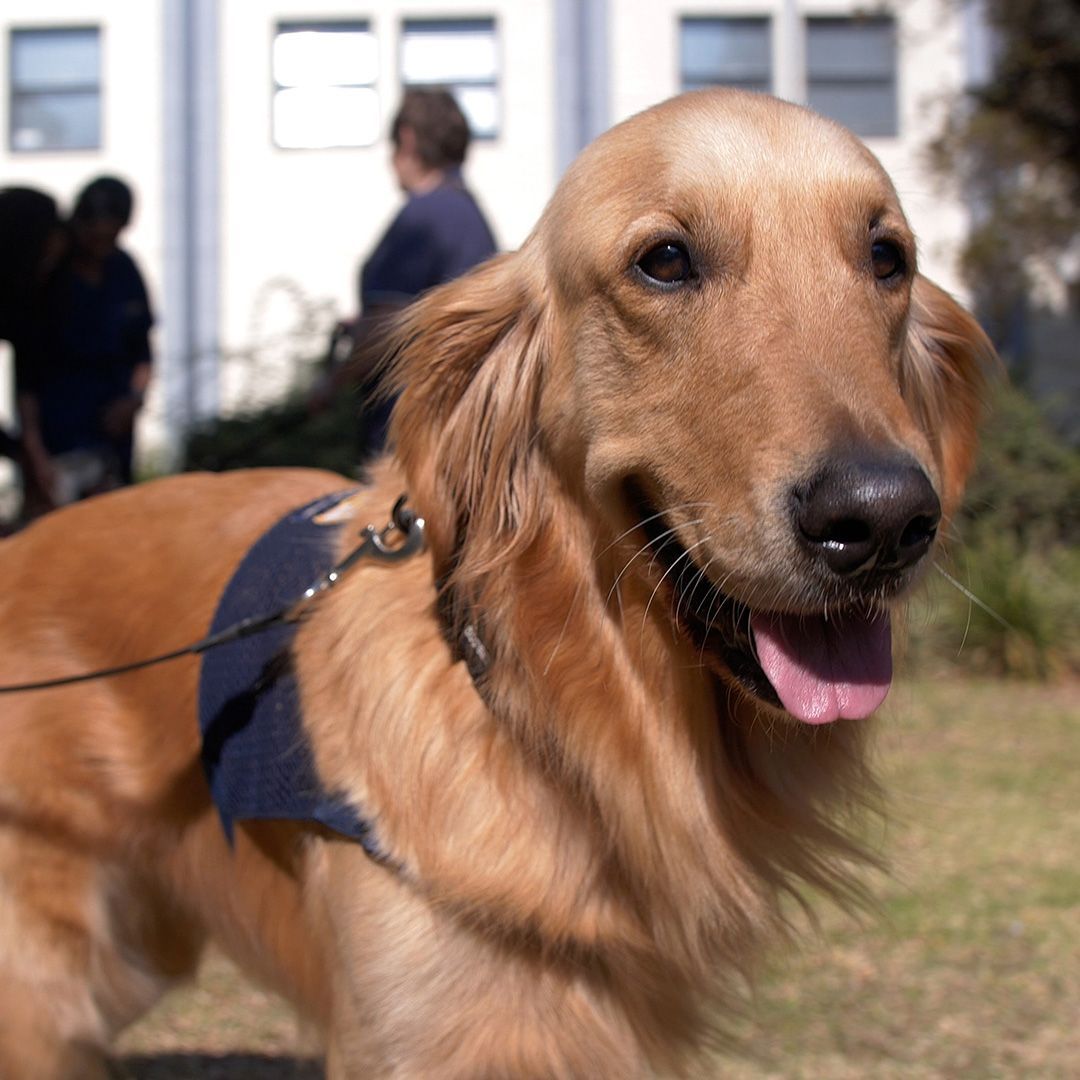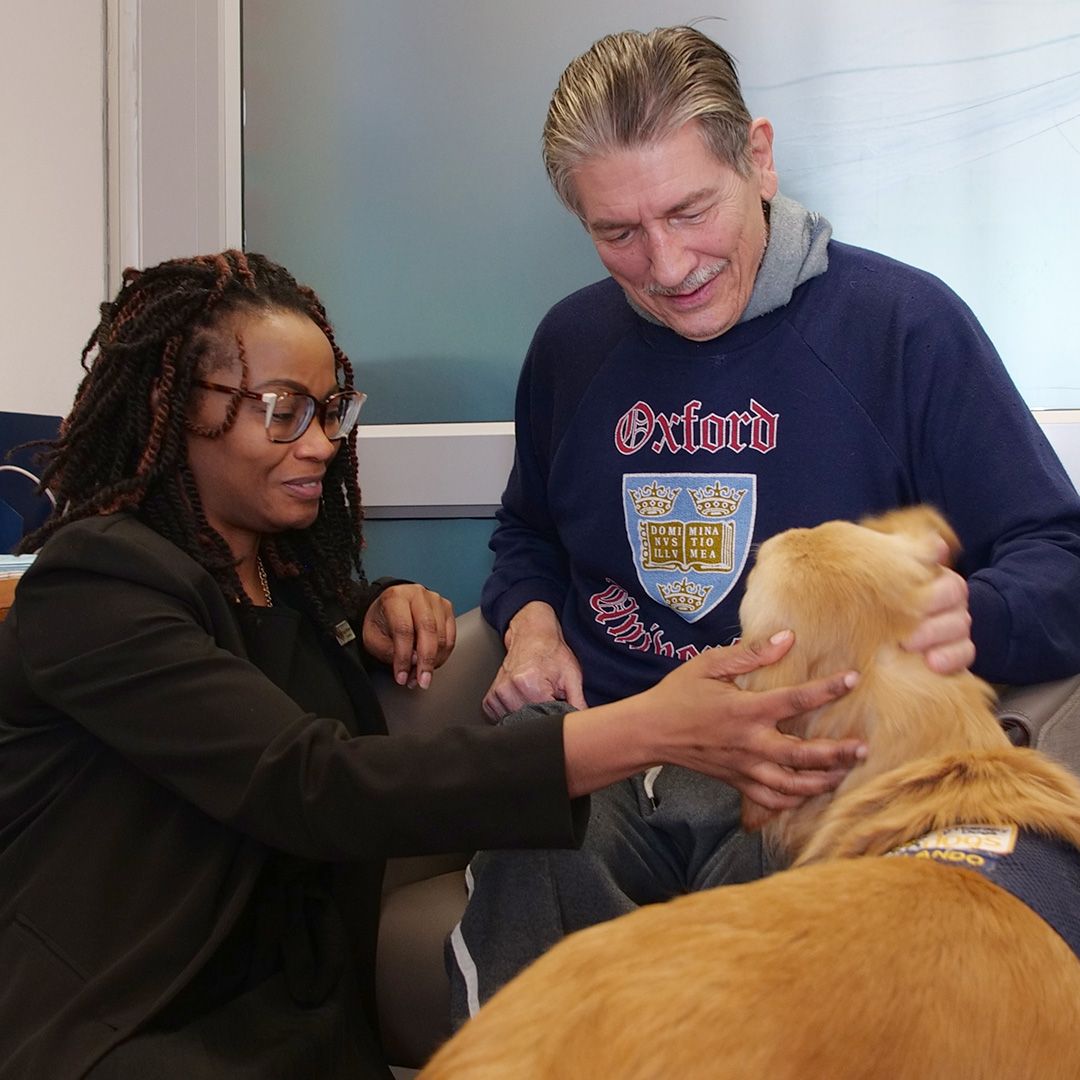Spreading ‘paws-itivity’, four paws at a time, for patients living with cancer
Therapy dog Honey enjoys a special moment with Mrs Penelope Wiggill at Netcare Olivedale Hospital’s radiotherapy unit.
Photo credit – Songi Langeni of Artfelt.
Furry care team are putting smiles on patients’ faces
A rare form of healing has taken root in the radiotherapy unit at Johannesburg’s Netcare Olivedale Hospital, where therapy dogs are doing more than hospital rounds by transforming the essence of patient care and bringing joy to patients living with cancer.
Commenting on the programme, Netcare’s Cancer Care quality manager, Dr Julie Herold, says, “These unconventional therapists, with their wagging tails and gentle spirits, bring an unparalleled sense of comfort, joy and warmth to patients in ways that no conventional treatment can.”
Orlando, a beautiful Golden Retriever, and his charming colleague Honey, a Labrador, are therapy dogs on a mission to bring comfort. Prioritising patients' health and safety, the dogs are fully vaccinated, impeccably clean and groomed, and dressed in their ‘TOP Dogs’ uniforms. They visit the radiotherapy unit at Netcare Olivedale Hospital on the first Monday of every month between 11h00 and 12h00, offering tender loving care and a morale boost to patients undergoing radiation treatment for their cancer.
Dr Herold notes that the presence of therapy dogs in radiotherapy units, like the one at Netcare Olivedale Hospital, aligns with a growing trend in the healthcare industry. “Dr Cindy Aitton, the Head of Netcare’s Cancer Care division, is a strong advocate of this initiative and has played a crucial role in its implementation across Netcare facilities. Our ultimate goal is to extend the benefits of animal therapy to all our radiotherapy units, enhancing patient care and wellbeing.
“Research indicates that on a physical level, therapy dogs can help lower blood pressure, increase beneficial hormones, and decrease stressful hormones. But the real benefit is on a psychological level, as therapy dogs can help with stress relief and ease feelings of loneliness and depression. The interaction with the dogs gives patients some sense of normality and loads of selfless love and affection when coming for their radiotherapy treatment. Interacting with the dogs is also meaningful and impactful for our staff, who thoroughly enjoy their presence. The therapy dogs bring joy and touch the lives of our patients and our staff, brightening up their day at work. It is lovely to see everyone welcoming the dogs as they walk around the hospital greeting familiar faces,” says Dr Herold.
The comforting effects of animals have been noticed throughout the years, with Florence Nightingale recommending "a small pet animal" as a good companion for the sick. A growing number of studies, including “The ‘pet effect’ in cancer patients: Risks and benefits of human-pet interaction” (Mei Mei Chan, Gonzalo Tapia Rico 2019) for The Royal Adelaide Hospital, support this anecdote with evidence that animals really can aid in the healing process, particularly for patients who are facing the challenges of a long therapeutic journey.
Radiation therapy unit manager at Netcare Olivedale, Nancy Tshishimbi, has seen the difference in patients since the TOP Dogs programme was introduced earlier this year: “Bringing therapy dogs into our radiation unit has transformed the experience, opening a whole new world for patients. You can see their eyes light up with joy when they see the four-legged therapists.”
“The dogs are extremely well behaved and gentle, and the difference in patient morale is clear; these dogs bring a sense of calm and happiness that traditional treatments alone cannot provide,” adds Nancy.
Wendy Carter, TOP Dogs area coordinator for Johannesburg, says the therapy dogs all have exceptional temperaments and are assessed continuously. “These dogs must be calm, gentle, and responsive to the needs of individuals experiencing physical and emotional stress.
“TOP Dogs recruits their members from the public who are willing to volunteer with their pets, together as a human-dog team. Critical in the selection of the dogs is that they have an already existing confidence and calmness around other dogs, people and unusual surroundings. At TOP Dogs, we often say therapy dogs are “born”, not “bred”. Our ethos is outlined in the Therapy Dog Bill of Rights to ensure that the wellness of our pets when performing the role of therapy dogs is always upmost in the handler’s mind. A gentle demeanour suitable for interacting with patients of all ages is most important. Handlers, too, undergo training to ensure they can effectively manage their dogs and support the patients they serve.
“Patients can choose whether to interact with the dogs at all. Depending on their needs, the dogs may place their paws on the patient’s arm or hand or rest a head on the patient’s lap. Some of the dogs will ‘speak’ on command,” says Wendy.
She explains that extremely rigorous hygiene protocols are observed to ensure that the health and wellbeing of patients are in no way compromised. “Dogs are bathed and groomed 24 to 48 hours before hospital visits. They have their teeth cleaned, mouth fresheners applied, and even their nails filed. They are also sprayed with an anti-bacterial spray. As they enter the reception area of the radiotherapy unit via a separate entrance, their paws are sanitised to remove the dust they may have picked up on their paws when crossing the car park. After touching the dogs, the hands of the patients are also sprayed with an anti-bacterial cleanser as a further precaution.
“We have positively impacted the lives of hundreds of people in need, and our dearest wish is to continue improving the lives of young and old in all stages of health,” concludes Wendy.
The Touch Our Pets Therapy Dogs, known as TOP Dogs, and their handlers are part of a volunteer animal-assisted therapy programme established in 2008 and are well known for the good they do in the communities they serve. This form of complementary care is increasingly common in hospitals, rehabilitation and frail care centres, children’s homes, homeless shelters, and hospices. Wendy and her team also do ongoing rehabilitation work with stroke and major accident victims while visiting facilities such as Netcare Rehabilitation Hospital, Netcare Milpark Hospital and others. Follow this link to read more about TOP Dogs and the vital work they do – https://www.therapytopdogs.co.za/















